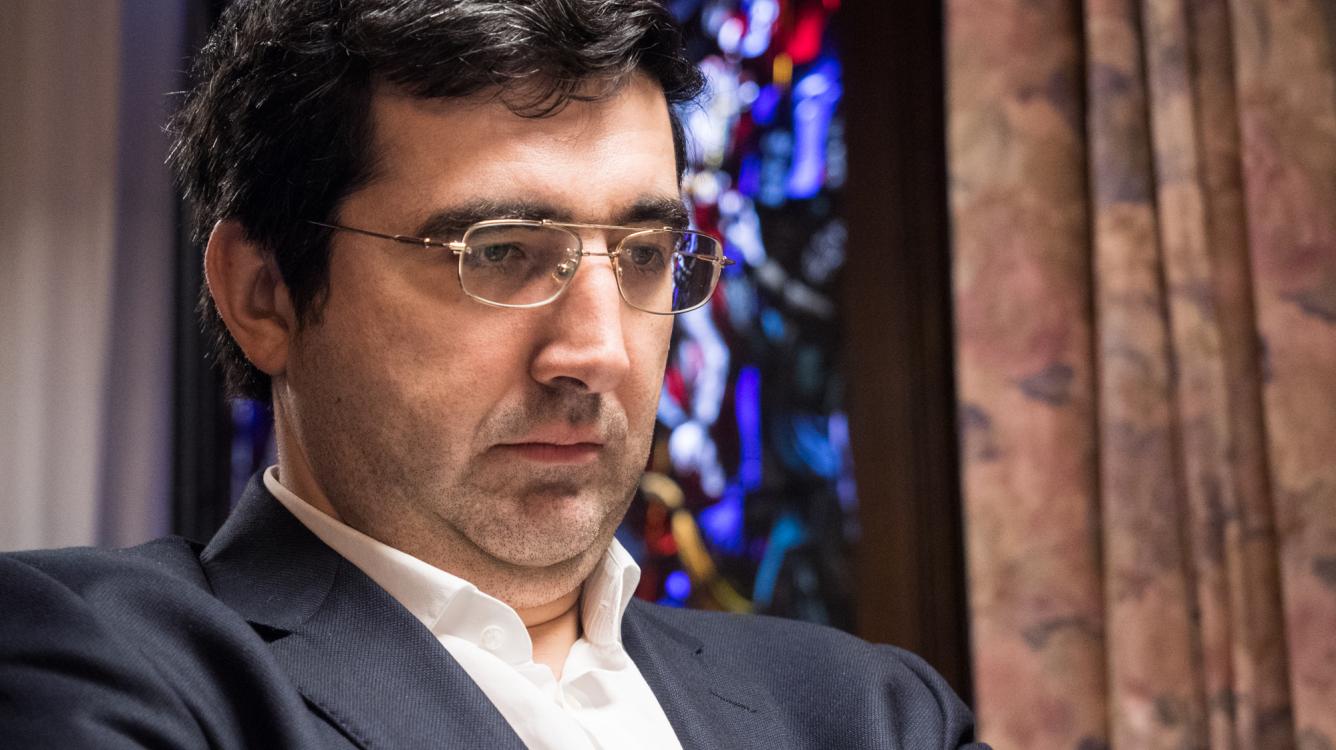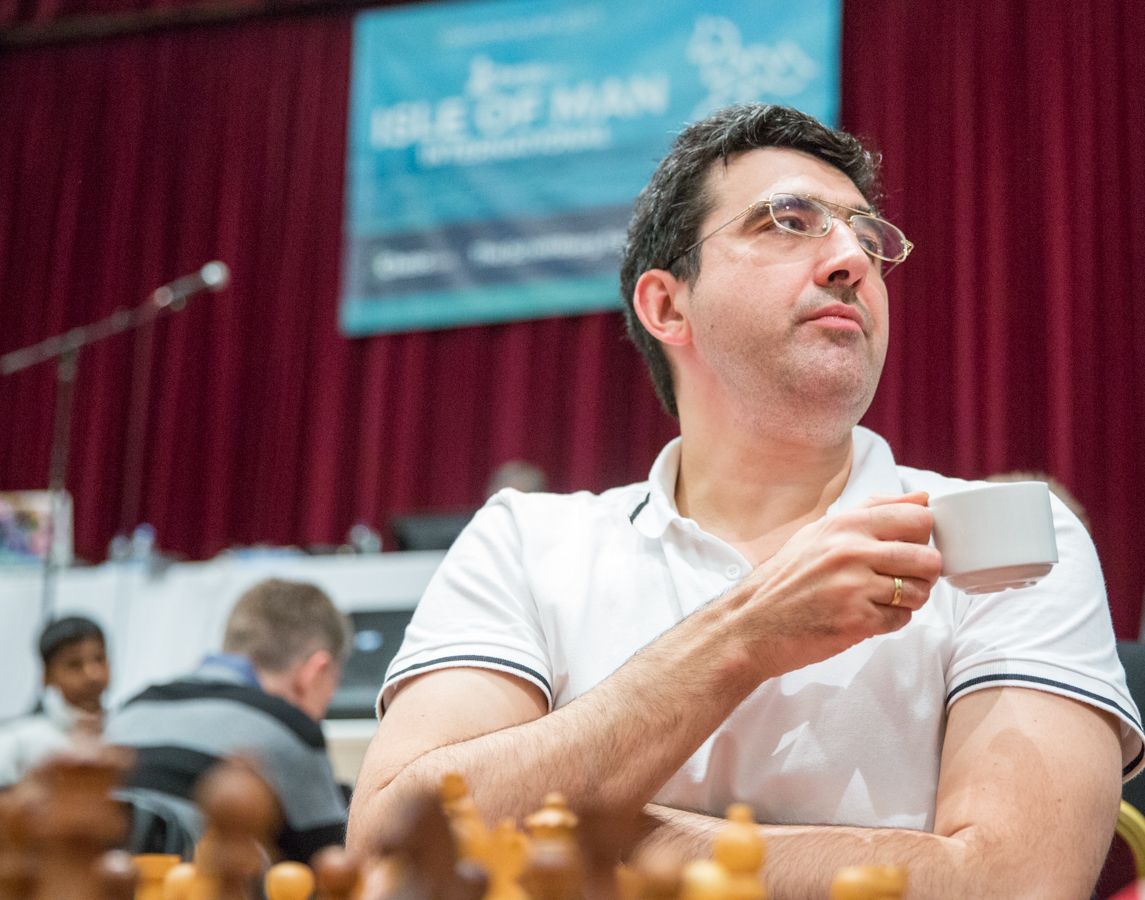
Vladimir Kramnik: The World Chess Championship Candidate
As you know from my previous article, in 1992 Vladimir Kramnik transformed from a FIDE master into one of the world's leading players.
The year 1993 made it official: Kramnik became a candidate for the world title.
Again we played in the same tournaments many times that year. First it was the traditional super-tournament in Dortmund, Germany. It is funny that both of us won only one game each and came in second.
There was a small difference though. While Kramnik tied for second place behind the winner Anatoly Karpov, I was second to last. As you've probably guessed already, this dramatic contrast was caused by the number of lost games.
While Kramnik didn't lose a single game, I lost three!

Here is the only game won by Kramnik in the tournament:
Again I was Black and again I experienced problems right out of the opening, but this time I couldn't do anything against Kramnik's powerful play.
As I explained in this article, I could've resigned even earlier. The funny thing is that in the only game that I won, I again used the idea that Kramnik had shown me one year earlier, so I think to some extent Kramnik won two games in this super-tournament.
In Dortmund, Kramnik was accompanied by his beautiful girlfriend from Czechoslovakia. When I saw this beautiful couple, I couldn't help but think: "Here is a tall, handsome man who has a gorgeous girlfriend and he also plays awesome chess. Is there anything else a man could wish for?"
This is Kramnik's picture from this super-tournament:




The next tournament we played together was the third world team championship. What a difference just one year makes!
In 1992, Kramnik barely made it onto the Russian team, and now he was playing on the first board already. We were supposed to play our game in the sixth round, and by that time it was clear that Kramnik wasn't in his best form as he looked pretty helpless against Gata Kamsky:
This was the first time I ever had White against "Big Vlad" and thought that it was probably my last chance to take revenge for the previous game that I lost to him. The time was working for Kramnik since the gap between us was getting bigger with every passing day, so I knew that in a couple of years I wouldn't be able to even dream about beating Kramnik.
During our team meeting I explained these considerations to our captain and team members. Unfortunately I was told that all the team wanted me to do was to make a draw. I tried to explain that I was playing White and Kramnik was not in his best form, but the answer was a mixture of a paraphrased Tal quote, "a form is a form, but Kramnik is Kramnik," and the response that GM Alburt got from his friends: "White, schmite, just make a draw, OK?"
So the next day I played some solid moves and a draw it was.


After Garry Kasparov broke out of FIDE's jurisdiction in 1993, the Professional Chess Association (PCA) was formed. One of the goals of this organization was to create a new world championship cycle and therefore in December of 1993 the PCA qualifier tournament was played.
The best eight players would play candidate matches to determine Kasparov's next challenger.
Kramnik qualified effortlessly. I especially like this game:
In the last round, Kramnik played another chess star. A quick draw guaranteed qualification for both players:
I think the final position of the game should be familiar to my readers.
For me, the tournament wasn't successful. It is enough to say that I managed to ruin Kramnik's idea twice in one tournament!
First I missed a simple win in a time trouble:
And then I just got completely crushed:
As Kramnik became a candidate for the world title, he started a new chapter of his career. So, let me summarize the reasons for Kramnik's meteoric rise from a FIDE master to a world championship challenger in just one-and-a-half years.
It was obvious that Kramnik had an enormous chess talent. In my youth tournaments, three players made the biggest impression on me, and I didn't have any doubts that all three of them would be world champions.
Kramnik and Vishy Anand indeed conquered the chess Olympus, but it is a huge injustice that the third player, Vassily Ivanchuk, never did.
Of course it is tempting to say that any player as gifted as Kramnik is bound to become one of the world's top players just due to his talent, but that would be wrong. A huge credit for Kramnik's quick rise to the top goes to the way he worked on chess. I'd like to quote Mikhail Botvinnik's introduction to Kasparov's book The Test Of Time:
In 1950 [GM] Levenfish held that a player's preparation would reduce the significance of improvisation and of the general creative element of chess.[...] But practice is the criterion of truth and it remains a fact that a player's preparation, his research work, leads to a raising of his practical competitive results. That is how Garry Kasparov operates. We wish him success and hope that other young masters will follow him!
In my opinion, Kramnik adopted and further developed this approach. Just like Botvinnik and Kasparov before him, Kramnik changed the way chess players looked at many opening systems. In this series of articles I demonstrated a lot of my games where I used and reused Kramnik's concept in the English Opening that he showed me in about 10 minutes.
I milked this concept for a big part of my chess career. In my old article I showed a neat trick to better understand openings that I also learned from Kramnik. Now try to imagine how many ideas he has developed for himself during the decades of his chess career!
Modern top players spend most of their time in front of their computers, so the human element of the game is frequently lost. Kramnik was one of the last giants from the pre-computer time who managed to blend the old-school approach with modern computerized openings.
That's why, to me, Kramnik's retirement from classical chess marks the end of an era.






